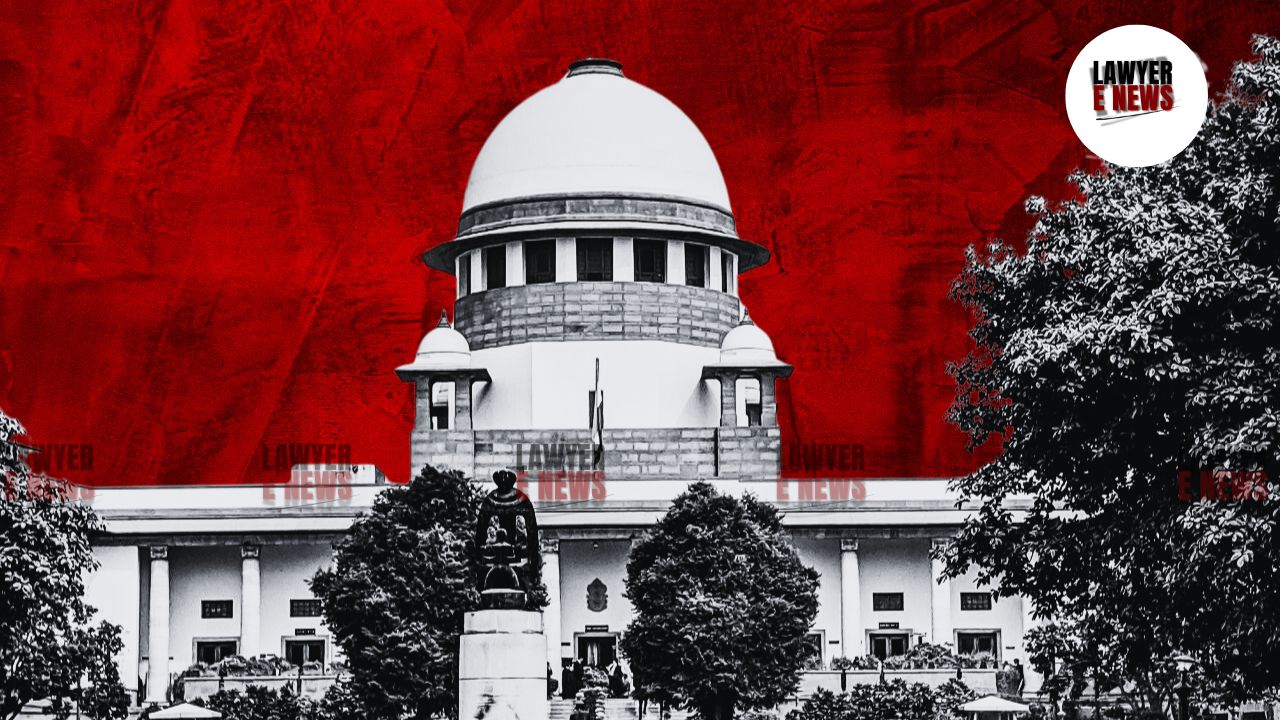-
by Admin
15 February 2026 5:35 AM



The Supreme Court of India, on October 22, 2024, dismissed the appeals filed by the accused, Uma and Balasubramanian, affirming their conviction for murder under Sections 120B (criminal conspiracy) and 302 (murder) of the Indian Penal Code (IPC). The Court upheld the life sentences awarded by the Madras High Court, finding that the prosecution had successfully proved the guilt of the appellants beyond a reasonable doubt through circumstantial evidence, motive, and medical testimony.
"Prosecution Established Complete Chain of Circumstances": Supreme Court Affirms Conviction for Murder
In a case relying on circumstantial evidence, the Supreme Court observed that the prosecution had established a complete chain of events, corroborated by medical evidence, that pointed conclusively to the appellants’ guilt. The appellants’ false defense under Section 313 of the Criminal Procedure Code (CrPC) further strengthened the prosecution’s case.
The case involved the murder of Rajalakshmi, the deceased, who was found dead under suspicious circumstances within six months of her marriage to Ravi (Accused No. 2). The prosecution alleged that the appellants, Uma (Accused No. 1) and Balasubramanian (Accused No. 3), conspired with Ravi to murder Rajalakshmi due to an illicit relationship between Ravi and Uma, which the deceased had discovered. The Court upheld the conviction of all three appellants under Sections 120B and 302 of the IPC, rejecting their plea for acquittal.
The deceased, Rajalakshmi, was married to Ravi on February 10, 2008, and was subjected to harassment soon after the marriage, according to the testimony of her adoptive father, P.W.-1 (Chandrakasan). He revealed that Ravi and Uma had an illicit relationship, which strained the deceased's relationship with her husband. On August 23, 2008, Rajalakshmi was found dead, with the appellants initially claiming she had consumed paint in a suicide attempt. However, the medical evidence contradicted this claim.
The case was initially tried by the Additional Sessions Court, which acquitted the appellants due to lack of direct evidence. However, the Madras High Court reversed the acquittal, finding that the circumstantial evidence, motive, and medical reports conclusively established their guilt. The Supreme Court, after re-evaluating the evidence, upheld the High Court's decision.
The prosecution argued that the motive for the murder was the illicit relationship between Uma (Accused No. 1) and Ravi (Accused No. 2), which had been discovered by the deceased. This relationship had created friction between the deceased and her husband, leading to the conspiracy to murder her. The High Court had accepted this motive as credible, supported by witness testimonies from P.W.-1 (the deceased’s adoptive father) and P.W.-2 (the deceased’s adoptive mother). The Supreme Court upheld the High Court's finding, stating:
"The illicit relationship between Accused Nos. 1 and 2 had become known to the deceased, leading to her murder. The prosecution successfully established the motive, which points toward the involvement of the appellants."
The medical evidence played a crucial role in the prosecution’s case. The postmortem report, prepared by P.W.-10 (Dr. Venkatesh), revealed multiple ante-mortem injuries on the deceased’s body, including a broken hyoid bone, which indicated death by strangulation. The testimony from P.W.-10 and the Viscera Report (P.W.-11) confirmed that the deceased had not ingested any poisonous substance, ruling out suicide. The Court observed:
"The medical evidence clearly establishes that the deceased was strangled, and the injuries sustained were ante-mortem. The broken hyoid bone is consistent with death by strangulation, ruling out the possibility of suicide by consuming paint."
"Burden of Proof Shifted to the Accused"
Since the case was based on circumstantial evidence, the Court relied on the well-established principle that the prosecution must establish a chain of circumstances that conclusively points to the guilt of the accused. The Court noted that the appellants were present at the crime scene and had offered false explanations during their statements under Section 313 of the CrPC. The appellants claimed that they had returned home after attending a function and found the deceased unconscious. However, they failed to explain the cause of death or provide an alibi.
Invoking Section 106 of the Indian Evidence Act, 1872, the Court held that the burden of proof had shifted to the appellants to explain the circumstances leading to the death, which they failed to do. The Court further stated:
"The appellants failed to provide any reasonable explanation for the death of the deceased. Their presence at the crime scene, coupled with their false defense, strengthens the chain of circumstances that points to their guilt."
The Supreme Court upheld the High Court’s decision to reverse the acquittal granted by the Trial Court. The High Court had noted that the Trial Court failed to appreciate the circumstantial and medical evidence adequately and had wrongly acquitted the accused. The Supreme Court observed:
"The High Court thoroughly re-evaluated the evidence on record and rightly overturned the acquittal. The Trial Court's failure to consider the circumstantial evidence and medical findings amounted to a misappreciation of the material on record."
The Supreme Court dismissed the appeals filed by Uma and Balasubramanian, as well as the separate appeal filed by Ravi, affirming their convictions and life imprisonment sentences under Sections 120B and 302 of the IPC. The Court concluded:
"The prosecution has proved its case beyond a reasonable doubt. The chain of circumstances, the medical evidence, and the false defense offered by the appellants all point conclusively to their guilt. The appeals are dismissed, and the convictions and sentences are upheld."
Date of Decision: October 22, 2024
Uma & Anr. v. The State Rep. by the Deputy Superintendent of Police
